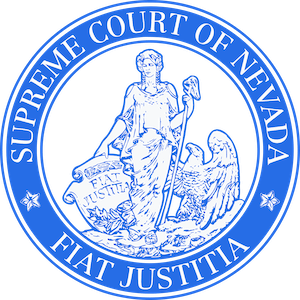About the Nevada Judiciary
The Nevada Judiciary interprets laws and serves as an impartial check on the Executive and Legislative branches. Its core responsibility is to provide fair, efficient, and accessible resolution of legal disputes.
Limited Jurisdiction Courts
Municipal and Justice Courts handle traffic, parking citations, and small civil cases. These courts have limited jurisdiction, which means they only handle specific types of cases.
Municipal Courts deal with cases involving violations of traffic and misdemeanor ordinances that occur within the city limits of incorporated municipalities. These courts are funded by the city, and most of the funds collected go to the city’s general fund. There are 17 municipal courts in Nevada presided over by 30 municipal judges, with eight of them also serving as justices of the peace.
Justice Courts handle misdemeanor crime and traffic matters, small claims disputes, evictions, and other civil matters less than $15,000. The justices of the peace also preside over felony and gross misdemeanor arraignments and conduct preliminary hearings to determine if sufficient evidence exists to hold criminals for trial at District Courts. Each county funds Justice Courts, and the funds collected by the courts go to their respective county treasurer for disbursement to county and state entities. As of 2025, Nevada has 40 justice courts presided over by 67 justices of the peace, with eight of them also serving as municipal court judges.
General Jurisdiction Courts
District Courts have general jurisdiction over all legal disputes. They resolve criminal, civil, family, and juvenile matters through arbitration, mediation, and bench or jury trials. They also hear appeals from Justice and Municipal Courts. District Court judges' salaries are paid by the state, while the county pays for support staff and court facilities.
Nevada’s 17 counties are organized into 11 Judicial Districts, served by 82 judges.
The State’s Highest Court
The Supreme Court of Nevada is the highest court in the state. Its primary responsibility is to review and rule on appeals from District Court cases. The court does not conduct fact-finding trials. Rather, the Supreme Court justices determine if legal or procedural errors were committed during the case. It is made up of seven justices.
Court of Appeals
To manage its workload, the Supreme Court uses a deflective model to assign cases to the Nevada Court of Appeals. This three-judge panel reviews cases that the Supreme Court redirects to them.

